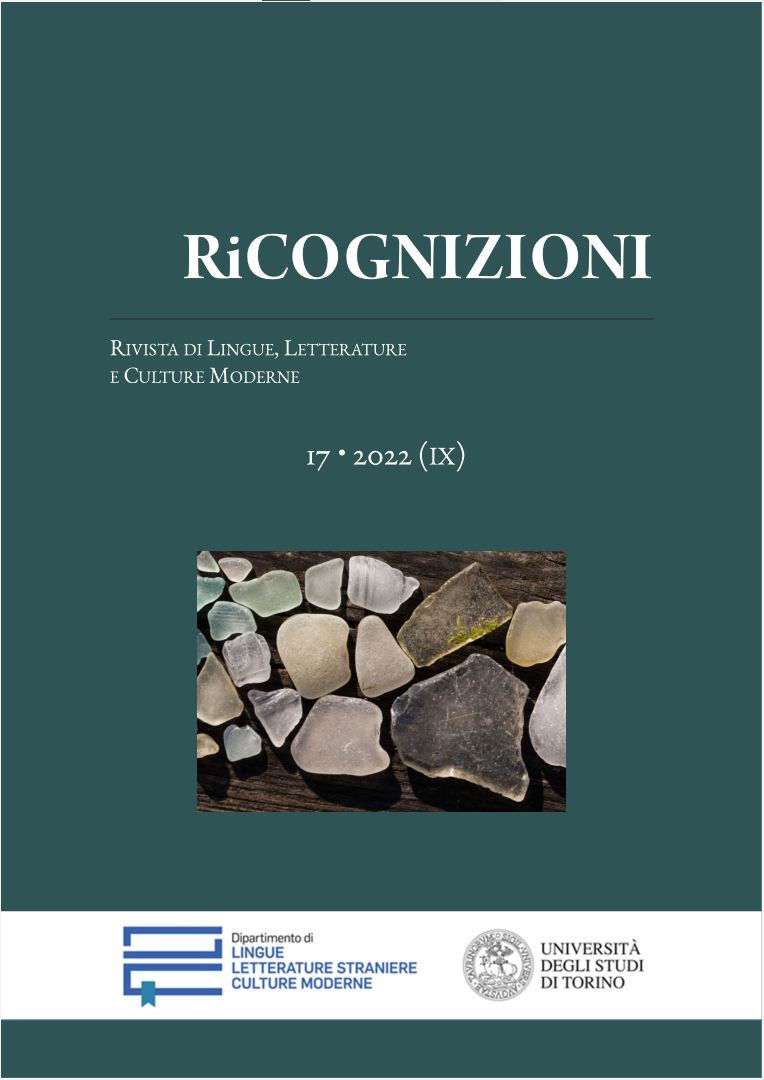Le crepe della realtà. Andrej Platonov oltre la "lakirovka"
DOI:
https://doi.org/10.13135/2384-8987/6557Parole chiave:
Andrej Platonov, Lakirova, Alexander BogdanovAbstract
The Cracks of Soviet Reality. Andrej Platonov beyond the "lakirovka". Andrej Platonov (1899-1951), whose main writings Cevengur (1930) and Kotlovan (The foundation Pit, 1929) are traditionally characterized by a biting interpretation of Soviet reality, is rarely associated with socialist realism. But in his incomplete novel Sčastlivaja Moskva (Happy Moscow, 1932-1936), he attempted to adopt the stylistic features and motifs belonging to this literary movement. Unable to abandon a critical view of the contemporary world, he provided his own interpretation of Stalinist reality by combining real-socialist themes with an energetic vision, drawn from Alexander Bogdanov's Tektology, a philosophical theory. In the article, the ways in which the author combines the two elements to distort and problematise the main features of the Stalinist reality are analysed by highlighting its limits and contradictions. He undermines the foundations of Stalin's ideological structures by unmasking existential anxiety among Soviet citizens, arising from the relationship with the harsh reality hidden behind Stalin’s motto ‘living has become better, living has become more joyful’. The counterpart to the construction of socialism is indeed the disintegration of the individual, interpreted according to the energy dynamics suggested by Aleksandr Bogdanov. What opposes progress and historical materialism is instead the static nature of the protagonists or their escape from the capital, Moscow, now ideologically transformed. By subverting the rules of ideology, the author demonstrates the precariousness of a system built from above and imposed on the individual, who puts his own identity at stake and discovers the distance between it and his role in society.
##submission.downloads##
Pubblicato
Come citare
Fascicolo
Sezione
Licenza
Gli autori che pubblicano su questa rivista accettano le seguenti condizioni:- Gli autori mantengono i diritti sulla loro opera e cedono alla rivista il diritto di prima pubblicazione dell'opera, contemporaneamente licenziata sotto una Licenza Creative Commons - Attribuzione che permette ad altri di condividere l'opera indicando la paternità intellettuale e la prima pubblicazione su questa rivista.
- Gli autori possono aderire ad altri accordi di licenza non esclusiva per la distribuzione della versione dell'opera pubblicata (es. depositarla in un archivio istituzionale o pubblicarla in una monografia), a patto di indicare che la prima pubblicazione è avvenuta su questa rivista.
- Gli autori possono diffondere la loro opera online (es. in repository istituzionali o nel loro sito web) prima e durante il processo di submission, poiché può portare a scambi produttivi e aumentare le citazioni dell'opera pubblicata (Vedi The Effect of Open Access).








